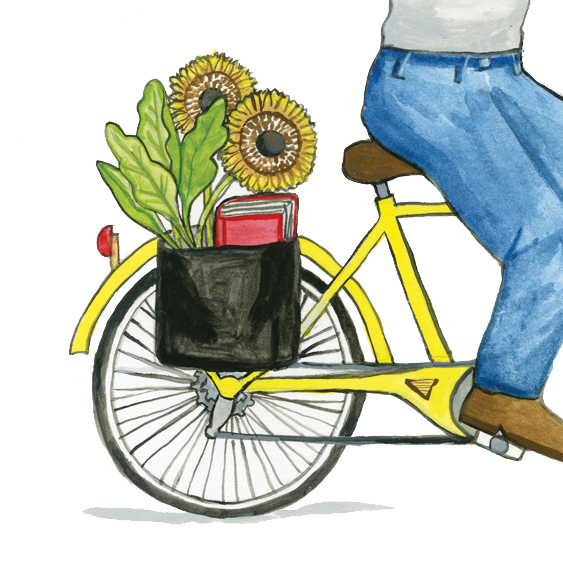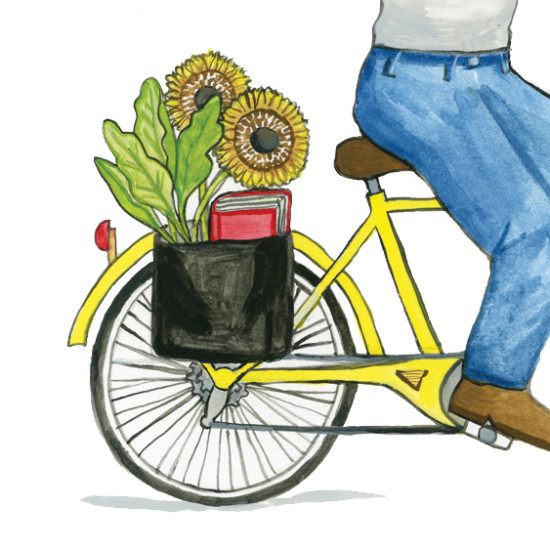Kristin
Sometimes I read things that are going around Facebook. They almost always make me sad, like Cecil the Lion. So I write about it, and feel a tiny bit better.
What’s the best thing a doctor can prescribe to a poor person? Money. That’s why these physicians support a Basic Income Guarantee.
Imagine a world where people with average middle-class jobs could afford to have kids, have health care, take 10 months off work to be with your babies, then put them in good quality day care, and not worry every minute about falling behind and slipping into poverty. Oh, wait—that’s how most civilized countries work. Just not the US. But it sounds so so so nice!
Speaking of the challenges of living in America… So many Americans are ashamed. The economy isn’t creating jobs for them, yet the culture still tells them they are worthless without a job. There is no way for them to support their family without a job, so they are ashamed. And angry. And they want to vote for Trump. Because Trump has no shame and he tells them he can fix it for them, give them back their jobs and their dignity. By firing all the Mexicans. And putting all the women in their place.
Lessig for president! He is running as a referendum president (he would serve until Congress passes an anti-corruption act.) The act would include: 1) Equal right to vote, 2) Equal representation, 3) Citizen funded elections
Progressive politicians: please talk like a progressive! Instead of mealy-mouthed platitudes about “economic growth” talk about the real problems and solutions. “Every working parent should get paid enough to care for their kids” and “Americans deserve more than a decent living, they deserve a decent life.”
Oregon Climate made this video about #ShellNo and cap and dividend.
Serena
A recent Harper’s feature grabbed my eye first for its subject—the neoliberalization of higher ed—and second for its first paragraph, which quotes my very own alma mater’s mission statement. (For the record, those banners he notes are part of a multiyear capital campaign I too find vapid and uninspiring.) The article expands on the warped priorities of today’s colleges and universities, especially as they capitulate to a cultural and economic force that has dominated the last several decades—and how that robs us of an informed, critical, and engaged citizenry.
I read only about a third of the New York Times article flying around the web this week about Amazon’s harsh work culture, and the rest I’ve picked up from commentary on it. This piece was a favorite, since it broadened the conversation from one of personal experiences of white-collar employee abuse to the larger costs of the too readily lauded “New Economy”—and the opportunities that disgruntlement with it may be opening up.
Approach the massive Orathupalayam Dam by road, and it quickly becomes clear that something has gone terribly wrong. Within 2 miles of the dam, the lush rice paddies, coconut palms and banana trees that have characterized this part of southern India suddenly give way to a parched, bright red landscape, dotted only with scrub forest. The Noyyal River, which used to be clean and clear, now runs foamy and green, polluted with the toxic runoff of the titanic textile industry 20 miles to the west, in Tirupur.… Chances are good that if you have a Gap, Tommy Hilfiger or Wal-Mart T-shirt marked “Made in India,” it came from here.
Cheap clothing is anything but, and both our consumer habits and our tax dollars prop it up. Unsure of the origin of your clothing materials? Or who made your clothes? Read up, buy different (and less, and used), look sharp.
Gene Demby of NPR CodeSwitch on “How Black Reporters Report on Black Death”:
As calls for newsroom diversity get louder and louder — and rightly so — we might do well to consider what it means that there’s an emerging, highly valued professional class of black reporters at boldface publications reporting on the shortchanging of black life in this country. They’re investigating police killings and segregated schools and racist housing policies and ballooning petty fines while their loved ones, or people who look like their loved ones, are out there living those stories. What it means — for the reporting we do, for the brands we represent, and for our own mental health — that we don’t stop being black people when we’re working as black reporters. That we quite literally have skin in the game.
Keiko
Nationally, nine in 10 Latinos want the government to take action against climate change. That’s what a new poll conducted by Latino Decisions found out this week. This is more evidence that the environment isn’t just a white liberal issue. Watch Latino leaders demand climate action and read about how the environment seems just as important as immigration for Latinos.
The Latino community’s attitude towards climate change isn’t breaking news—Sightline’s senior communications strategist Anna Fahey started writing about their stalwart support of climate action way back in 2012.
When it comes to creating climate policies, Latinos are a politically-significant constituency and these polling results shouldn’t be overlooked.
Anna
Some hearty local folks (among them a few friends of Sightline) are journeying by bike from Washington State to the Alberta tar sands (more precisely, from Whidbey Island, north via the Anacortes, by the Shell refineries at March Pt., and onward to the open-pit tar sands near Fort McMurray in Alberta), nearly 1,100 miles.
The activists (also storytellers and artists) are intend to draw more concrete connections between people and places. Part of this is simply to show that those tar-pit tragedies that seem so remote are only a bike ride away—around the same distance as it is from Seattle to San Francisco. It’s also a spiritual pilgrimage. They explain: “While on our journey we would like to talk to some of the people most affected by the environmental degradation—and particularly connect with the First Nations who have been fighting most directly against the expansion of the Trans Mountain pipeline. From this, we’re hoping to learn how we’re all connected to the tar sands, both near and far.” Follow their progress here.
Though I pipe up pretty often about the power of saying what we really believe, with backbone, and giving your base red meat, David Roberts yet again managed to sum up decisively and persuasively what I’ve been mulling over and over and over, but waiting for more evidence or confidence—or something—to say out loud about climate messaging. Instead of watering everything down and trying to meet conservatives “where they are”:
A more ruthless Democratic strategist, one more concerned with winning than coming together, might counsel the opposite. If its association with climate change is preventing conservatives from embracing clean energy, then emphasize that association at every opportunity. Public opinion on clean energy is consistent, deep, and positive; public opinion on climate change is shallow and wishy-washy. The latter won’t drag the former down; the former will lift the latter up. If Democrats can connect climate change with a more positive story of innovation, economic opportunity, and national purpose, they can cleanse it of some of the dour, hectoring tone it has taken on for many Americans.
Meanwhile, climate will act as a force field keeping the right away, which will allow Democrats to own both issues for a generation. (And in a generation, they will almost certainly be top national priorities.) Dems will win victories for clean energy not by persuading or cajoling conservatives to their side, tiptoeing around climate, but by coupling national peril with national opportunity, without hedging or apology, confident that they are on the right side of history. Republicans will be forced to chase them instead of obstructing them.
And, a new horror film about eating sugar. Scary.










